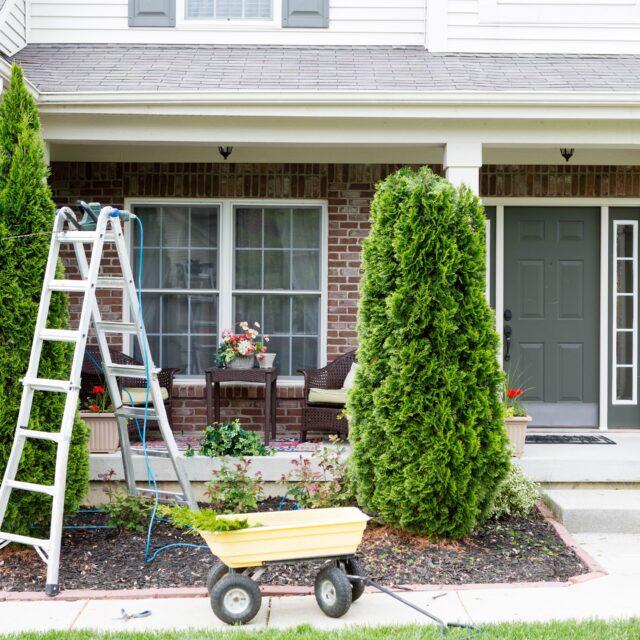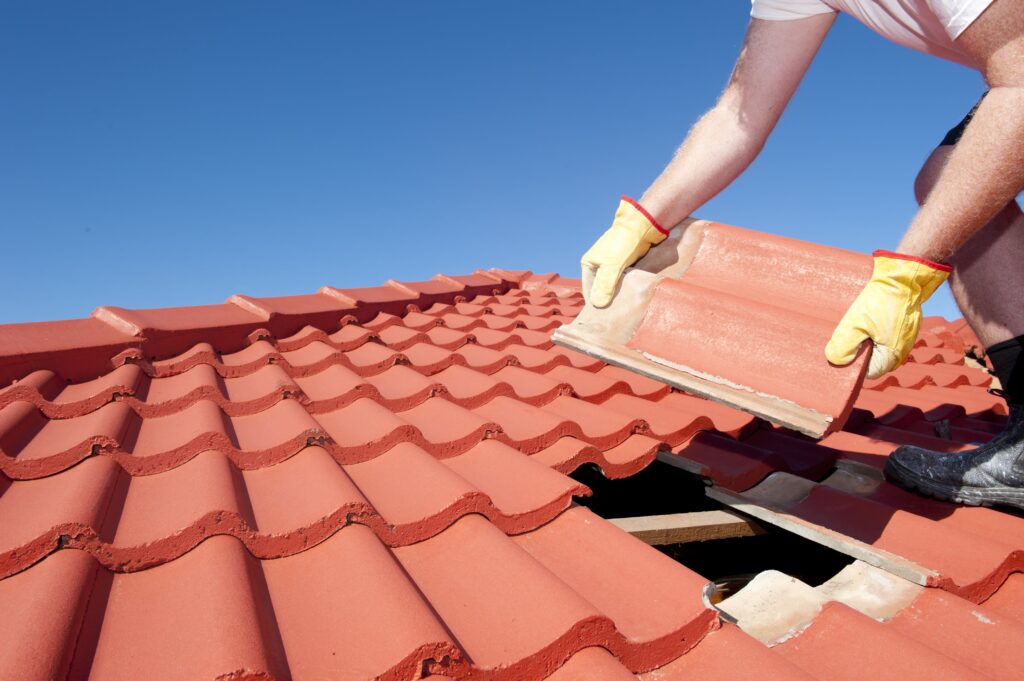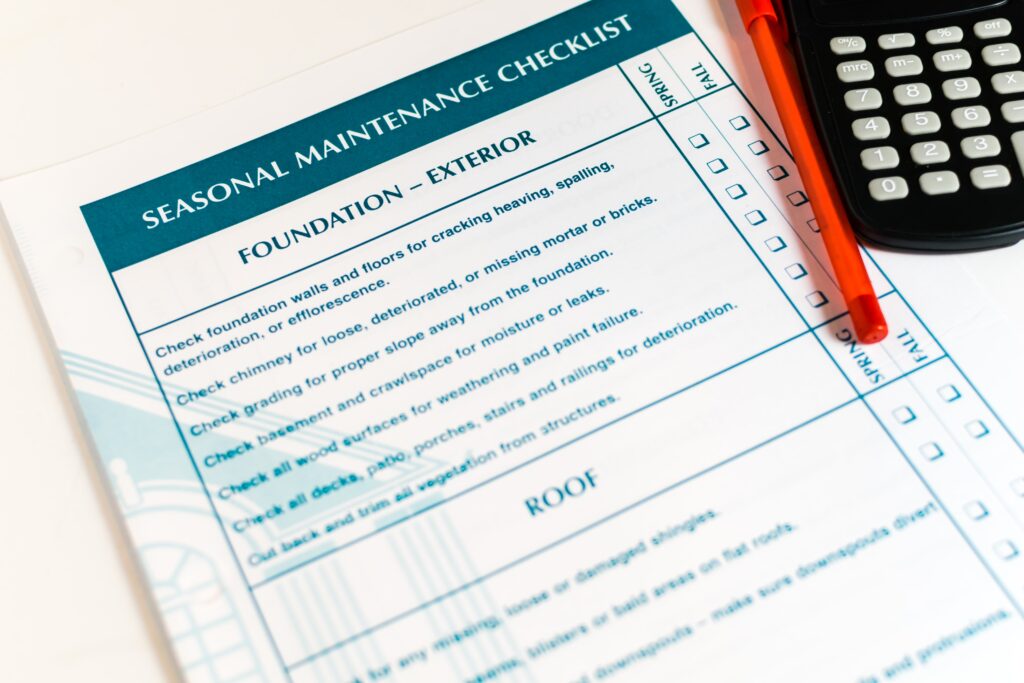Your Seasonal Home Maintenance Checklist Guide

- Written by: jlbmdev

Owning a home can be both a blessing and a curse. If you aren’t prepared for all the work that goes into your house’s maintenance, it can quickly become overwhelming.
To help make sure you feel prepared, we created a seasonal home maintenance checklist to guide you through the process. We’ll also explain why doing routine maintenance is important and the benefits of doing so.

As a human, you do routine maintenance on yourself—going to the doctor if you’re sick, getting routine checkups at the dentist, and keeping yourself healthy. So why wouldn’t you do the same for your home?
Keeping your home in the best shape is something that can not only benefit you now but also pay off in the future.
Routine home maintenance saves money by seeing and fixing small problems now before they become bigger, and more expensive, repairs.
For example, if you have a small hole in your roof that you don’t repair, that hole can lead to your roof deteriorating faster. Or the water can leak into your attic causing mold and mildew or even rot on your ceiling joists. Replacing a roof can be an expensive repair that you could easily avoid. And the price can increase depending on what materials you use and prices in your area.
Most home warranties require you to keep up with routine maintenance. If you don’t then your policy can refuse to pay for repairs or replacement caused by the lack of maintenance.
Your home is one of the biggest investments and you should be treating it as such for resale. Prospective buyers will notice if you’ve kept up with landscaping, painting, and other repairs. Most buyers want to move into a turnkey property so they will notice these small details and it will help increase your home’s value.
If you don’t keep up with the small repairs, it can be reflected in a home inspection report and cause your home’s value to decrease. A well-maintained home can sell for about 10% more than one that isn’t.
By conducting regular home maintenance checks, you minimize the risk of incidents like fires and burglaries from happening. Frequently testing your home’s smoke alarms and fire extinguishers helps ensure that they’ll be in working order in the event of an emergency, giving you peace of mind.
By maintaining your landscaping, you’re also detecting thieves. They tend to target homes with overgrown or high bushes because the home looks abandoned and they provide easy cover to jump into windows.

One of life’s inescapable facts is home maintenance costs money. And sometimes it can cost a lot of money. But the big question is how much money will you need to spend on maintenance?
A general rule of thumb is to set aside anywhere between 1%-4% of your home’s value in a house maintenance account. For example, if your home’s value is $300,000, then you would budget anywhere from $3,000 to $12,000 to spend on annual maintenance.
When creating your maintenance budget, you’ll want to keep in mind any additional projects you want to do, like a kitchen renovation or adding a new deck. That should be a separate expense in your budget.

Here are some ideas for routine maintenance tasks in your home. An important thing to keep in mind is to customize these lists to your home and your schedule. Some of these items can be done monthly or you can set a specific day for spring/winter maintenance projects.
Checklist for Fall/Winter Months
Cover your AC unit
Placing a cover over your unit helps protect the coils inside from damage from debris and ice.
Turn off outside faucets and put away hoses before the first freeze
Drain any excess water so it won’t get trapped inside the hose/faucet and damage them.
If you have an inground sprinkler system also drain that so it doesn’t get damaged.
Check furnace
Clean or replace filters to improve air quality and make your furnace operate better.
Clean gutters
Remove any organic buildup, like leaves, so water can run freely.
Check HVAC
Make sure your system is operating correctly and have plenty of time to get any issues repaired before it becomes an emergency.
Keep an eye on pipes so they don’t freeze
When you’re leaving on a winter trip, make sure your heat is still on in case of a cold snap. This keeps the water in your pipes from freezing and potentially bursting the pipes, leaving you a mess to clean up.
Check dryer vents for lint buildup
Clean out dryer vents with a vacuum or by manually pulling any excess lint. This not only makes your dryer run efficiently, but it also reduces your fire risk.
Seal any gaps where heat can escape
In the colder months, keeping as much of the heat in your home as possible helps save you money and keeps your family comfortable.
Checklist for Spring/Summer Months
Check gutters
Make sure there isn’t any damage from winter storms so any water can run down a drainpipe instead of inside your house or behind any siding.
Inspect foundations
Look for any new cracks or if any existing cracks are worse.
Replace any caulking and weather-stripping
Check around any spaces where water can get in like windows and skylights. This can help you keep cool air inside, lowering your electric costs and helping keep water out of your home.
Inspect roof
Look for missing tiles or shingles and replace them with new ones.
Check for leaks to make sure water isn’t running into your home.
Inspect trees
Examine trees for dead limbs that could fall and damage property.
Check HVAC
Check the cooling part of your HVAC system to see if you need any refrigerants like freon.
Repair/refinish deck
Check your deck to make sure it’s still structurally sound and make any necessary repairs.
Refinishing your deck can help protect it from the weather and help it last longer.
Reverse the ceiling fan
Changing your ceiling fan’s motion to rotate counterclockwise creates a downdraft that can make the room feel cooler.

Most people don’t enjoy home maintenance tasks. It’s easier to say “I’ll do it tomorrow” and then put it off for another day. However, by keeping up with routine seasonal maintenance, you can increase your home’s value and help prevent future issues.
At J&L, we understand it can be overwhelming and want to help make the process as easy as possible. We can advise you on the correct products to use for a project and if the job becomes bigger than you realized, we can connect you with one of our expert contractors.